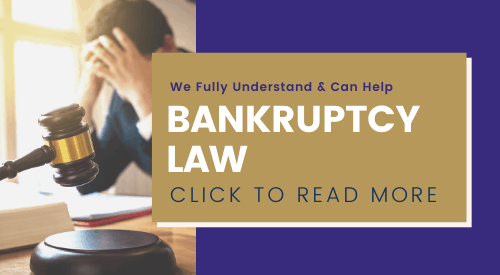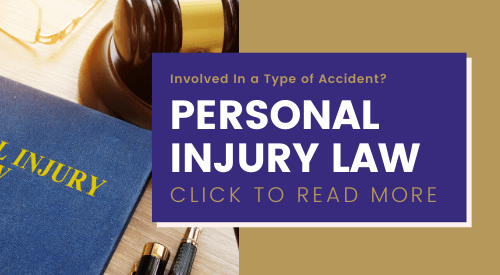Bankruptcy
Bankruptcy by ASM Law, PC
Bankruptcy Law

People who choose to file for bankruptcy have the choice of doing so without a bankruptcy lawyer. This is a possible option in cases that are relatively simple and straightforward. However, it’s usually not a wise move to file bankruptcy without legal representation.
The most common forms of bankruptcy are Chapter 7 and Chapter 13. In either case, filing without a lawyer’s help can cost you more than what you might save on legal fees. On this post, we’ll review each of the types of bankruptcy. But first, a look at why legal help is well worth the cost. A bankruptcy lawyer can help you:
- Consider possible alternatives to filing bankruptcy. Bankruptcy may not be the sole way for you to settle your financial woes. In the event that this isn’t the right option for you, your lawyer will recommend an appropriate alternative.
- Determine which variety of bankruptcy to file. Chapter 7 and Chapter 13 achieve different objectives and purposes. For example, Chapter 7 wipes away significant debt in a short period of time. However, it won’t serve to save a house if you are behind on the mortgage payments. A lawyer considers your needs and recommends a strategy that will help you attain them.
Get FREE Consultation today by calling us at 847-231-3999!
Preparing for Bankruptcy
Applying some basic calculations helps indicate if you’ll qualify for Chapter 7 or Chapter 13 bankruptcy. A lawyer understands how to utilize any specific circumstances that may play a role in your case.
Value your properties and assets. Are you aware of how to place a value on assets such as the items in your living room? Your lawyer will assure that you properly disclose and value assets.
Consult a Bankruptcy Lawyer Today
Select and apply appropriate exemptions. Like other states, Illinois has an exemption system. It’s used to maintain property in bankruptcy. Your lawyer knows how to utilize exemption rules to shield as many of your assets as is possible.
Determining discharge of your debts. There are some debts that this does not wipe away. Then there are other types of debt that wipe away only when a case meets particular conditions. A lawyer can explain which of your debts filing eliminates and which shall remain.
The Steps of Filing for Bankruptcy and How Bankruptcy Lawyers Assist You
Fulfill the schedules and other necessary paperwork. You’ll need to file pages of financial information about your assets, income, debts, expenses and recent transactions. All information must be accurate under penalty of perjury. Your bankruptcy lawyer will inform you on what you’ll need to disclose and how to place value upon your assets. In addition, your lawyer can advise which of your expenses are necessary and which tax returns to provide.
Guide you through your bankruptcy filing. Lawyers explain and prepare clients for proceeding with a bankruptcy case. For instance, the steps necessary to qualify for a discharge and the actions creditors might take. Lawyers also inform their clients of the role that judges and bankruptcy trustees play in the process.
Provide correct and comprehensive testimony. You’ll need to sign papers under penalty of perjury. It serves to tell the court that the information you provide is accurate. At meetings with creditors and for court appearances, you’ll affirm that you are telling the truth. Your lawyer will appear with you to verify your testimony is full and correct
Learn About Solutions To Financial Troubles – Talk To a Bankruptcy Lawyer
Handle creditors in violation of automatic stays. In some cases, creditors don’t know when to stop contacting you. An automatic stay is an order prohibiting collection activities after a bankruptcy case files. Lawyers may demand compliance from creditors or request the court to hold a creditor in contempt.
Negotiate with creditors. In a Chapter 7 bankruptcy case, lawyers can negotiate a redemption or a reaffirmation agreement with secured creditors. These serve to allow you to retain your house or vehicle. In Chapter 13 bankruptcies, lawyers negotiate with creditors for terms of payment and value of collateral to secure debt payments.
Modifying Chapter 13 repayment plans. Sometimes circumstances change during a Chapter 13 case. Your lawyer can ask the court for an adjustment to the terms of your plan or ask for an early discharge on account of hardship. In a chapter 7 bankruptcy, a bankruptcy trustee cancels some or all of your debts. In addition, the trustee might liquidate some of your properties in order to pay your creditors. Chapter 7 bankruptcy gets its name because the law is in Chapter 7 of the federal Bankruptcy Code. The Chapter 7 bankruptcy process typically lasts from four to six months.
Chapter 7 bankruptcy can’t proceed if you’ve had a bankruptcy discharge during the previous six to eight years. (Depending upon which bankruptcy type.) Likewise if depending upon your income, debt and expenses you could realistically do a Chapter 13 plan.
Almost any individual that owns property, a residence or a business in Illinois may file for Chapter 7. However, there are requirements to meet before discharge is possible. (Discharge is a court order wiping away qualifying debts.)
Learn More About the Types of Bankruptcy Filings Available To You
To determine eligibility for Chapter 7, calculate your monthly income against the median income for families of comparable size. Current monthly income is generally one’s average income during the six months before filing for bankruptcy. If your income falls below the median, Chapter 7 eligibility is typically presumed by law. However, meeting additional criteria is also necessary for qualification. However, when income is higher than the median you’ll have to pass a means test to proceed with Chapter 7.
People earning a substantial income or who wish to shield their property will typically file for Chapter 13. In an exchange for debt relief, these filers may pay discretionary income to creditors in a three to five year payment plan.
Chapter 13 isn’t appropriate for everyone. A few of the requirements to know about upfront include:
There are debt limits. Both secured and unsecured debts may not go over set amounts. (Ask your lawyer about Chapter 13 debt limits.) Secured debt provides creditors the right to seize property like a house or vehicle if you don’t repay. On the other hand, an unsecured debt does not grant this right to creditors. An example of unsecured debt is a medical or credit card bill.
When an individual’s total debt amount is too high, he or she is ineligible for Chapter 13.
A consistent income. When someone files for a Chapter 13, he or she must show the court a couple key requirements. For example, that they can afford to pay both monthly household bills as well as the repayment plan. When one’s income is inconsistent or simply too low, the court will not approve a proposed debt repayment plan.
Bankruptcy Filings May Help Protect Your Assets
You’re not a business. Chapter 13 is an option not available to companies. In other words, only an individual person may file for this type. However, business debts that you’re responsible for can be part of a payment plan. Therefore, from a realistic standpoint, a sole proprietor might be eligible to benefit from Chapter 13.
If you’re worrying about mounting debts and financial concerts, it helps to get answers from an experienced professional. Contact our law offices today to schedule a consultation and to learn more about your options.






